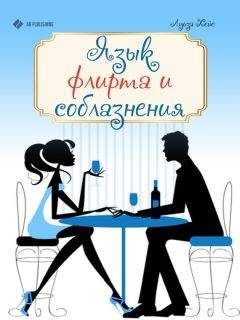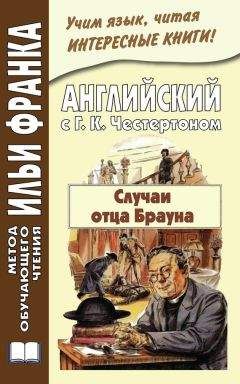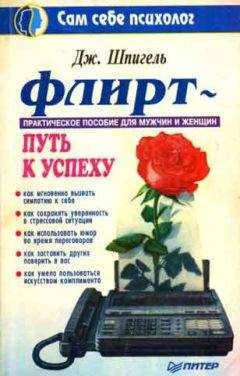Гилберт Честертон - Английский с Г. К. Честертоном. Рассказы об отце Брауне / Gilbert Keith Chesterton. The Innocence of Father Brown
The wintry road curved over a ridge in cutting frost, with cruel black shapes of bush and thicket; but Flambeau fancied that he saw beyond it faintly the edge of an aureole that was not starlight and moonlight, but some fire such as is made by men. He watched it as the tale drew to its close.
“St. Clare was a hell-hound, but he was a hound of breed. Never, I’ll swear, was he so lucid and so strong as when poor Murray lay a cold lump at his feet. Never in all his triumphs, as Captain Keith said truly, was the great man so great as he was in this last world-despised defeat. He looked coolly at his weapon to wipe off the blood; he saw the point he had planted between his victim’s shoulders had broken off in the body.
He saw quite calmly, as through a club windowpane, all that must follow (очень хладнокровно, словно он смотрел сквозь окно клуба, он увидел все, что должно произойти далее; windowpane – оконное стекло). He saw that men must find the unaccountable corpse (он понял, что солдаты найдут подозрительный труп; to see – видеть; смотреть; вообразить; понимать; unaccountable – необъяснимый; странный; corpse – труп); must extract the unaccountable sword-point (извлекут подозрительное острие шпаги; extract – вытаскивать, извлекать; sword-point – острие шпаги; point – точка; пятнышко; пункт, момент; острие; наконечник); must notice the unaccountable broken sword – or absence of sword (заметят подозрительную сломанную шпагу или отсутствие шпаги). He had killed, but not silenced (он убил, но не заставил замолчать; silence – тишина; безмолвие; молчание). But his imperious intellect rose against the facer (но его властный разум восстал против такой непредвиденной трудности; imperious – повелительный, властный, властолюбивый); there was one way yet (все же был один выход). He could make the corpse less unaccountable (он мог сделать труп менее подозрительным). He could create a hill of corpses to cover this one (он мог создать гору трупов, чтобы скрыть этот труп; hill – возвышение; холм). In twenty minutes eight hundred English soldiers were marching down to their death (через двадцать минут восемьсот английских солдат двигались /маршем/ навстречу своей смерти).”
The warmer glow behind the black winter wood grew richer and brighter (теплый свет за черным зимним лесом стал сильнее и ярче; to grow), and Flambeau strode on to reach it (и Фламбо зашагал /большими шагами/, чтобы достичь его; to stride). Father Brown also quickened his stride; but he seemed merely absorbed in his tale (отец Браун также ускорил свой шаг; но казалось, что он просто поглощен своим рассказом; to absorb – всасывать, впитывать; поглощать; увлекать).
He saw quite calmly, as through a club windowpane, all that must follow. He saw that men must find the unaccountable corpse; must extract the unaccountable sword-point; must notice the unaccountable broken sword – or absence of sword. He had killed, but not silenced. But his imperious intellect rose against the facer; there was one way yet. He could make the corpse less unaccountable. He could create a hill of corpses to cover this one. In twenty minutes eight hundred English soldiers were marching down to their death.”
The warmer glow behind the black winter wood grew richer and brighter, and Flambeau strode on to reach it. Father Brown also quickened his stride; but he seemed merely absorbed in his tale.
“Such was the valour of that English thousand, and such the genius of their commander (таково было бесстрашие этих английских солдат, и таков гений их командующего; thousand – тысяча; масса; множество), that if they had at once attacked the hill, even their mad march might have met some luck (что, если бы они без промедления атаковали холм, их сумасшедший бросок мог бы оказаться успешным; to meet; luck – фортуна; везение; удача; успех). But the evil mind that played with them like pawns had other aims and reasons (но у злого разума, который играл ими, словно пешками, были другие цели и мотивы; evil – злой, дурной; пагубный; pawn – пешка; орудие в чьих-л. руках; reason – причина, основание; соображение, мотив). They must remain in the marshes by the bridge at least till British corpses should be a common sight there (они должны были оставаться в топях у моста до тех пор, пока трупы британских солдат не станут обычным зрелищем; marsh – болото, топь; corpse – труп; common sight – обычное зрелище). Then for the last grand scene (затем заключительная величественная сцена); the silver-haired soldier-saint would give up his shattered sword to save further slaughter (седой солдат-святой отдаст свою сломанную шпагу, чтобы избежать дальнейшее массовое убийство/резню; to shatter – разбить вдребезги; надломить; slaughter – убой, забой /скота/; /массовое/ убийство, резня). Oh, it was well organised for an impromptu (для экспромта было неплохо сделано; impromptu – экспромт; импровизация). But I think (I cannot prove), I think that it was while they stuck there in the bloody mire that someone doubted – and someone guessed (но я думаю (я не могу этого доказать), что в то время, как они застряли в этом кровавом болоте, у кого-то возникли сомнения и кто-то догадался /о правде/; to stick; mire – трясина, болото; сложное положение, трудная ситуация; to doubt – сомневаться; to guess – гадать, догадываться).”
He was mute a moment, and then said (он помолчал немного, а потом сказал; mute – немой; безмолвный, молчаливый): “There is a voice from nowhere that tells me the man who guessed was the lover… the man to wed the old man’s child (мой внутренний голос: «голос из ниоткуда» подсказывает мне, что это был возлюбленный… человек, который /собирался/ жениться на дочери: «ребенке» старого солдата).”
“Such was the valour of that English thousand, and such the genius of their commander, that if they had at once attacked the hill, even their mad march might have met some luck. But the evil mind that played with them like pawns had other aims and reasons. They must remain in the marshes by the bridge at least till British corpses should be a common sight there. Then for the last grand scene; the silver-haired soldier-saint would give up his shattered sword to save further slaughter. Oh, it was well organised for an impromptu. But I think (I cannot prove), I think that it was while they stuck there in the bloody mire that someone doubted – and someone guessed.”
He was mute a moment, and then said: “There is a voice from nowhere that tells me the man who guessed was the lover… the man to wed the old man’s child.”
“But what about Olivier and the hanging (а как же Оливье и эта казнь через повешение; hanging – смертная казнь через повешение; to hang – вешать; висеть)?” asked Flambeau.
“Olivier, partly from chivalry, partly from policy, seldom encumbered his march with captives (отчасти из рыцарства, отчасти из политических соображений Оливье редко обременял свои войска пленными; chivalry – рыцарство, благородство; encumber – загромождать; усложнять; обременять),” explained the narrator (объяснил рассказчик). “He released everybody in most cases (в большинстве случаев он всех отпускал; to release – избавлять, освобождать /от обязательств/; освобождать /из заключения/, выпускать на волю). He released everybody in this case (в тот раз он отпустил всех).
“Everybody but the general (всех, кроме генерала),” said the tall man (сказал высокий человек).
“Everybody (всех),” said the priest (сказал священник).
Flambeau knit his black brows (Фламбо нахмурил черные брови; to knit – вязать; хмурить /брови/). “I don’t grasp it all yet (я все еще не понимаю),” he said.
“But what about Olivier and the hanging?” asked Flambeau.
“Olivier, partly from chivalry, partly from policy, seldom encumbered his march with captives,” explained the narrator. “He released everybody in most cases. He released everybody in this case.
“Everybody but the general,” said the tall man.
“Everybody,” said the priest.
Flambeau knit his black brows. “I don’t grasp it all yet,” he said.
“There is another picture, Flambeau (вот еще одна картина, Фламбо),” said Brown in his more mystical undertone (сказал отец Браун еще более таинственным приглушенным голосом; undertone – приглушенный голос). “I can’t prove it; but I can do more – I can see it (я не могу доказать, но важнее то, что я вижу ее). There is a camp breaking up on the bare, torrid hills at morning (вот лагерь, который собирается утром покинуть выжженные солнцем холмы; to break up – прекращать, заканчивать; torrid – жаркий, знойный, выжженный солнцем), and Brazilian uniforms massed in blocks and columns to march (и бразильцы в форменной военной одежде, построенные в многочисленные группы и колонны для марш-броска; to march – маршировать; двигаться колонной; выступать в походном порядке). There is the red shirt and long black beard of Olivier, which blows as he stands, his broad-brimmed hat in his hand (вот красная рубаха Оливье и его длинная черная борода, которая развевается на ветру, в то время как он стоит с широкополой шляпой в руке; to blow – дуть; brim – край; поля /шляпы/). He is saying farewell to the great enemy he is setting free (он прощается с достойным противником, которого он отпускает на свободу; to say farewell – прощаться) – the simple, snow-headed English veteran, who thanks him in the name of his men (простым английским ветераном с белой, как снег, головой, который благодарит его от имени своих солдат). The English remnant stand behind at attention (оставшиеся в живых англичане стоят по команде смирно позади /генерала/; remnant – остаток; оставшиеся в живых, выжившие; to stand at attention – стоять по команде смирно); beside them are stores and vehicles for the retreat (рядом с ними запасы провианта и повозки для отступления; retreat – отступление). The drums roll (бьют барабаны; to roll – катить/ся/; грохотать, громыхать); the Brazilians are moving (бразильцы трогаются в путь); the English are still like statues (англичане /стоят/ как изваяния). So they abide till the last hum and flash of the enemy have faded from the tropic horizon (они так и стоят, пока не стихает /последний/ шум и враг не скрывается из вида за тропическим горизонтом; to abide – ждать, ожидать /покорно или пассивно/; hum – жужжание; глухой, приглушенный шум; flash – внешний блеск; to fade – увядать; постепенно исчезать, расплываться, растворяться). Then they alter their postures all at once, like dead men coming to life (затем они сразу же меняют позы, как ожившие мертвецы); they turn their fifty faces upon the general – faces not to be forgotten (к генералу обращаются пятьдесят лиц – лиц, которые нельзя забыть; to forget).”




